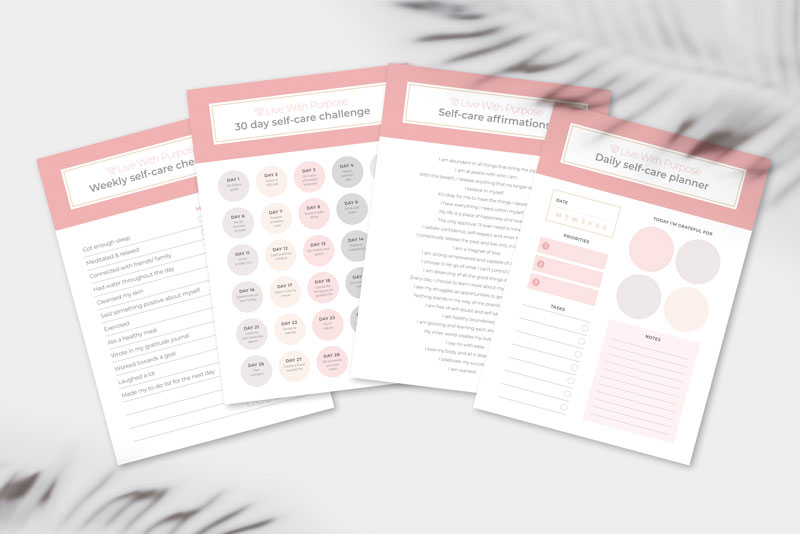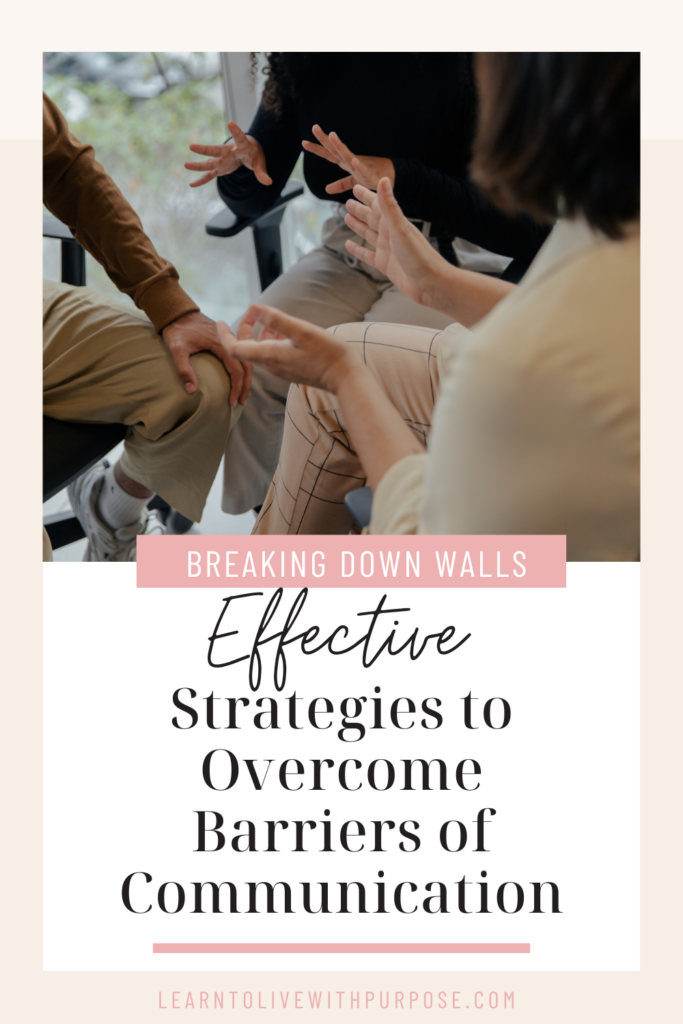
Communication is the lifeblood of relationships, both personal and professional. However, barriers to effective communication can hinder the exchange of ideas, lead to misunderstandings, and strain relationships. 🫠
In this comprehensive guide, we will explore common barriers to communication and provide practical strategies to overcome them.
Whether you’re navigating workplace dynamics, fostering better connections with friends and family, or seeking to improve your overall communication skills, these insights will help you break down the walls that impede effective communication. 🙂
Let’s get started!
Understanding Barriers to Communication:
1. Lack of Clarity and Precision:
One of the fundamental barriers to effective communication is a lack of clarity. Vague or imprecise messages can lead to confusion and misinterpretation. It’s essential to articulate your thoughts clearly, using precise language and providing relevant details to ensure your message is accurately received. 😊
2. Emotional Barriers:
Emotional barriers, such as stress, anxiety, or strong emotions, can impede communication. When individuals are emotionally charged, they may struggle to express themselves clearly or be receptive to others. Managing emotions and creating a calm environment are crucial for effective communication.

3. Cultural and Language Differences:
Cultural and language diversity can create barriers to communication. Differences in language proficiency, communication styles, and cultural norms may lead to misunderstandings.
To overcome this barrier, it’s essential to foster cultural awareness, be patient with language differences, and use clear and straightforward language. 😊
4. Noise and Distractions:
Physical and environmental factors, such as noise and distractions, can interfere with communication. Whether it’s background noise, technological disruptions, or a busy environment, minimising distractions enhances the clarity and effectiveness of communication. 👂

5. Assumptions and Stereotypes:
Preconceived assumptions and stereotypes can create barriers by influencing how we interpret messages. Avoid making assumptions about others’ perspectives or intentions. Instead, approach communication with an open mind, seeking to understand diverse viewpoints without judgment. 🧠
6. Lack of Feedback:
Communication is a two-way process, and the absence of feedback can be a significant barrier. Encourage open dialogue, actively seek input from others, and provide constructive feedback. Creating a feedback loop ensures that messages are received and understood and not going in one ear and out the other.

7. Poor Listening Skills:
Ineffective listening is a pervasive barrier to communication. When individuals fail to actively listen, they miss important details, leading to misunderstandings. Improving listening skills involves giving full attention, avoiding interruptions, and practicing empathy to understand the speaker’s perspective. 😊
8. Power Dynamics and Hierarchies:
Unequal power dynamics or hierarchies within relationships or organisations can stifle open communication. Those in lower positions may feel hesitant to express their thoughts or concerns. Fostering an inclusive and open communication culture helps overcome these power-related barriers. 🫂
Strategies to Overcome Communication Barriers:
1. Prioritise Clarity in Communication:
- Articulate Clearly: Use clear and concise language when conveying your message. Avoid jargon or overly complex terms that may confuse the listener.
- Provide Context: Offer relevant background information to ensure your message is fully understood. Context helps the listener connect the dots and interpret your message accurately.
- Encourage Clarification: Create an environment where others feel comfortable seeking clarification. Encouraging questions can help address potential misunderstandings. 🤗

2. Emotional Intelligence and Regulation:
- Self-Awareness: Develop an understanding of your own emotions. Recognise how emotions may impact your communication style and be mindful of potential emotional triggers.
- Empathy: Practice putting yourself in others’ shoes. Empathetic communication involves understanding others’ perspectives and responding with sensitivity.
- Stress Management: Learn effective stress management techniques, such as deep breathing or mindfulness, to regulate emotions during challenging conversations.
Want to learn more about emotional intelligence? Check out this blog here: How to practice emotional regulation – tips for adults on how to cope
3. Cultural Sensitivity Training:
- Cultural Awareness: Educate yourself about different cultures, communication styles, and customs. A culturally aware approach fosters understanding and respect.
- Language Simplification: In multilingual settings, use simple language and avoid idioms or slang that may not translate well. Visual aids can also help enhance understanding. 🤗
- Inclusivity: Create an inclusive environment that values and celebrates cultural diversity. Encourage open discussions about cultural differences to promote understanding.
4. Create a Distraction-Free Environment:
- Choose Appropriate Settings: Select quiet and conducive environments for important conversations. Minimse disruptions by choosing a location with minimal background noise.
- Digital Etiquette: In digital communication, turn off notifications and ensure a stable internet connection. This helps maintain focus during virtual meetings or discussions. 🧑💻
- Active Presence: Demonstrate active presence by giving your full attention to the speaker. Make eye contact and eliminate distractions to signal that you are fully engaged.

5. Challenge Assumptions and Stereotypes:
- Open-Mindedness: Approach conversations with an open mind, avoiding preconceived notions. Be willing to challenge your assumptions and consider alternative perspectives.
- Promote Diversity and Inclusion: Actively promote diversity and inclusion in your personal and professional spheres. Encourage dialogue that challenges stereotypes and fosters a culture of acceptance.
- Educate Others: Share information that challenges common stereotypes. Education is a powerful tool in breaking down barriers and promoting understanding. 📖
6. Establish a Feedback Culture:
- Encourage Open Dialogue: Foster an environment where open dialogue is encouraged. Create channels for constructive feedback and ensure that all team members feel comfortable expressing their opinions. 🗣️
- Regular Check-Ins: Conduct regular check-ins to gather feedback on communication processes. Identify areas for improvement and implement changes based on the feedback received.
- Model Constructive Feedback: Lead by example by providing constructive feedback. Demonstrating how to give and receive feedback creates a culture of continuous improvement.
7. Enhance Listening Skills:
- Active Listening Techniques: Practice active listening by giving your full attention to the speaker. Avoid interrupting and provide feedback to demonstrate that you are engaged.
- Paraphrasing: Paraphrase the speaker’s message to confirm understanding. This not only clarifies information but also signals to the speaker that you are actively processing their words. 💬
- Empathetic Listening: Cultivate empathetic listening by trying to understand the emotions behind the words. Consider the speaker’s perspective and respond with empathy.

GRAB YOURSELF OUR FREE SELF-CARE BUNDLE!
It’s time to take some time out for yourself love! Check out this four-page bundle of self-care goodness that you can use to relax, refresh and rejuvenate. You deserve it sis.
Pop your info in and download your bundle now ❤️
8. Promote Inclusive Communication:
- Equal Participation: Encourage equal participation in discussions, regardless of hierarchical positions. Create platforms where everyone has the opportunity to voice their opinions and ideas.
- Team-building Activities: Foster a sense of unity within the team through team-building activities. Shared experiences can break down barriers and create a more cohesive group.
- Leadership Modeling: Leaders should model inclusive communication. By demonstrating openness to diverse perspectives and ideas, leaders set the tone for an inclusive organisational culture. 🏬
Real-Life Applications:
1. Workplace Communication:
- Clear Communication Channels: Establish clear communication channels within the workplace. This includes well-defined reporting structures, open-door policies, and regular team meetings.
- Conflict Resolution Workshops: Conduct workshops on conflict resolution to equip employees with the skills needed to navigate disagreements effectively. Emphasise active listening and constructive feedback.👂
2. Personal Relationships:
- Quality Time: In personal relationships, allocate quality time for meaningful conversations. Create an environment where both partners feel comfortable expressing their thoughts and emotions.
- Shared Activities: Engage in shared activities to strengthen bonds. Activities that foster communication, such as cooking together or participating in a hobby, provide opportunities for connection. 👨👩👧
Do you want to know your partner better? Check out our Relationship Planner.
3. Conflict Resolution:
- Mediation Training: Provide mediation training for individuals involved in conflict resolution. Equipping team members with mediation skills enhances their ability to facilitate productive discussions. 🧘♀️
- Establishing Common Ground: Identify common ground during conflicts. Finding shared values or goals can serve as a foundation for resolution and create a more collaborative atmosphere.
Conclusion:
Effectively overcoming barriers to communication involves a multifaceted approach that integrates self-awareness, empathy, and a commitment to fostering an inclusive environment. By implementing these strategies in various aspects of our lives, we can dismantle communication barriers and pave the way for stronger connections, collaboration, and understanding. 🤗
As we actively apply these strategies, we contribute to creating a culture of effective communication—one where diverse perspectives are valued, feedback is embraced, and relationships thrive. Breaking down the walls that hinder communication is a transformative journey that leads to more meaningful connections and a more harmonious and connected world.
Pin this post for a reminder 📌 👇

Related Blog
Things to Say “No” to for you to Live a Happier Life
How to Stop Settling For Less Than You Deserve
How to Become the Best Version of Yourself: A Guide For 20-Somethings
Life Audit and its Importance
Have you ever felt like you’re not moving forward in life? Like you’re stuck in a rut, and despite your best efforts, you can’t seem to break free? 🤔
If you’ve experienced this you’re not alone my friend. It’s a feeling that many of us grapple with at various points in our lives. This is where the concept of a life audit comes in, a strategic method of taking stock of your life and aligning it with your goals.
A life audit is essentially a comprehensive evaluation of your life’s current state. It involves examining your values, goals, accomplishments, and areas of improvement. 🧘
This process allows you to understand where you stand and what you need to do to get where you want to be. It’s not about judging yourself or feeling guilty about unaccomplished goals; it’s about understanding and strategising for your future.
The importance of a life audit cannot be overstated. It helps in identifying the disconnect between your aspirations and your current reality. 🙂
By doing so, it allows you to make necessary changes and adjustments to align your life with your goals. It’s about taking control of your life, rather than being controlled by it.

Defining Your Personal and Professional Goals
The first step in a life audit is defining your personal and professional goals. What do you want to achieve in your life? What’s your vision for your future? These are some of the questions that you need to answer.
It’s important to be specific and realistic when setting your goals. For instance, instead of saying “I want to be rich,” you might say “I want to save £1 million by the time I’m 50.” Then you can go deeper than that and describe how you’re going to do so. 🤔
Working your way backward will show you the steps that you will need to take in order to reach your goals.
Your goals should be a reflection of your values and passions. They should excite you and motivate you to take action. They should also be flexible, allowing room for change and growth. Remember, your goals are not set in stone; they can evolve as you do. 😊
Defining your goals is not just about creating a roadmap for your future; it’s about understanding who you are and what you want from life.
It’s about finding your purpose and pursuing it with determination and perseverance. ❤️
The Role of a Life Audit in Mastering Your Goals
A life audit plays a crucial role in mastering your goals. It provides a clear picture of your current situation, allowing you to understand where you are in relation to your goals.
It highlights the gaps and discrepancies in your life, making it easier to devise a plan of action. 💪
By conducting a life audit, you can identify the obstacles that are hindering your progress. These may include negative thought patterns, unhealthy relationships, or unproductive habits.
Once identified, you can work on overcoming these obstacles, paving the way for your success.
Furthermore, a life audit allows you to assess the effectiveness of your strategies and actions. Are you moving closer to your goals? Are your efforts yielding the desired results? If not, you can adjust your strategies and actions accordingly. 🤷

Simple Steps to Conduct a Life Audit
Conducting a life audit may seem daunting, but it doesn’t have to be. Here are some simple steps to guide you through the process:
Step 1: Define your values. What matters most to you in life? What are your core beliefs and principles?
Step 2: Identify your goals. What do you want to achieve in your personal and professional life? 🤔
Step 3: Evaluate your current situation. Where are you in relation to your goals? What’s working and what’s not?
Step 4: Identify the gaps and obstacles. What’s preventing you from achieving your goals? How can you overcome these challenges?
Step 5: Devise a plan of action. How will you move forward? What steps will you take to achieve your goals?
Step 6: Implement your plan. Take action and monitor your progress. Adjust your plan as necessary. 😄
How to Analyse the Results of a Life Audit
Analysing the results of a life audit is just as important as conducting it. This is where you get to see the fruits of your labor – the insights and revelations that will guide your journey towards your goals. 🏆
When analysing the results, focus on the gaps and discrepancies. These are the areas that need your attention.
Identify the steps you need to take to bridge these gaps. Remember, small steps can lead to big changes. 👣
Also, pay attention to the positives. What are you doing well? What are your strengths? Celebrate your wins, no matter how small they may be, they’re still wins.

Case Study: Successful Life Audit and Goal Setting
Consider the case of Haley, a mid-level manager in a multinational company. She was feeling stuck in her career and wanted more from life. She decided to conduct a life audit.
Haley started by defining her values and identifying her goals. She realised that she valued personal growth and creativity, but her current job didn’t offer much room for either. Her goal was to have a career that allowed her to use her creative skills and grow professionally. 😄
Haley evaluated her current situation, identifying the gaps and obstacles. She realised that her lack of creative skills was the main obstacle. She devised a plan of action, which included taking online courses to enhance her skills. 🖥️
Haley implemented her plan and monitored her progress. She took the courses and started applying her newly acquired skills at work. His efforts paid off – she was promoted to a higher-level position that allowed her to use his creative skills.
Haley’s story illustrates the power of a life audit. It enables you to take control of your life and steer it in the direction of your dreams.
This is what I want for you! 💕
Overcoming Challenges During a Life Audit
Conducting a life audit can be challenging. It requires introspection, honesty, and courage. You may encounter resistance from within – fear of change, self-doubt, or procrastination.
However, remember that growth lies outside your comfort zone. Embrace the challenges and turn them into opportunities for growth. 🪴
It’s also important to be patient with yourself. Change takes time. Don’t beat yourself up if you don’t see immediate results. Keep moving forward, one step at a time. 🤗

Tools and Resources for a Successful Life Audit
There are several tools and resources that can aid you in your life audit journey. Journaling is a powerful tool that can help you gain clarity and insight.
It allows you to express your thoughts and feelings, making sense of your experiences. 🙂
Online platforms like LifeTick and GoalsOnTrack provide tools and resources for goal setting and tracking. They can help you stay focused and motivated in your journey.
Books like “The Life Audit” by Caroline Righton and “The Desire Map” by Danielle LaPorte provide practical guidance on conducting a life audit. 🕮

How to Maintain Progress After a Life Audit
Maintaining progress after a life audit is crucial. It’s easy to fall back into old patterns and habits.
To avoid this, keep track of your progress. Celebrate your wins and learn from your mistakes. Stay focused on your goals and remind yourself of why they are important to you. 🥰
Remember that a life audit is not a one-time event; it’s an ongoing process. Regularly revisit your goals and adjust them as necessary. Stay open to change and growth.
Conclusion
Let’s face it, a life audit is a powerful tool that can transform your life. ❤️
It provides clarity, focus, and motivation, enabling you to master your goals. It’s about taking control of your life and steering it in the direction of your dreams.
So, are you ready to conduct your life audit?
The time to start is now. 🕗
Pin this post for a reminder 📌 👇

Related Blogs
The Top 10 Reasons Why People Don’t Reach Success
Did you know that people on my email list sometimes get exclusive discounts on my products? Join the community and save yourself some coins!
Freshly-squeezed inspiration, and no-nonsense tips + tricks to improve your life delivered to your inbox weekly.
Subscribe to my newsletter
Subscribe
You're all signed up!
Be sure to whitelist our email address so that all the goodies make it to your inbox.
